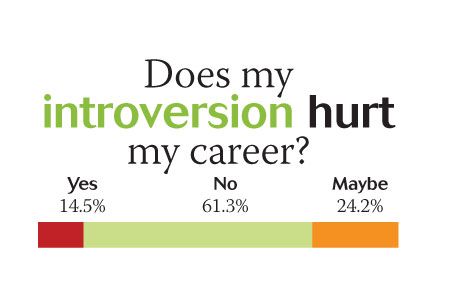Get "in" with introverts and extroverts
Whether you're fueled by quiet or craziness, you can leverage your personality and skills in veterinary practice.
Next >
Working with someone who's the opposite of you can feel like a challenge, but it can also be a real benefit for clients when you work in a client-focused industry like veterinary medicine. About 26 percent of team members responding to the 2013 Firstline Veterinary Team Trends Study identified as introverted, while another 26 percent say they're extroverted. And 37 percent describe themselves as equally introverted and extroverted. Marianne Mallonee, CVPM, is a Firstline Editorial Advisory Board member and hospital administrator and part owner of Wheat Ridge Animal Hospital in Wheat Ridge, Colo. She's also an extrovert with introverted family members

Understand differences
Veterinary team members face daily challenges, including stressful situations that involve emotions and finances. "Understanding each other and what makes each other tick, our strengths and weaknesses, helps us work together better," Mallonee says.
For example, while we may assume extroverts make the best receptionists, this may be a job where introverts may flourish too. While extroverts might naturally demonstrate their excitement to see any pet or person who walks through the practice doors, introverts might shine by connecting with a quieter client who's visiting to euthanize a pet or take the time to listen to a concerned client.

Some introverts might also shine by being detail-oriented or focusing on ways to improve. So avoid any assumptions about the positions that team members might flourish in by personality alone. Instead, use your understanding of others' personalities to leverage each others' strengths.
"Really it comes down to having a team of people who can complement each other," Mallonee says. "If you had an entire groups of extroverts at the front desk, the feeling might be different than if you have a balance," Mallonee says. "We all have components of each personality type, too, so you may need to learn when to show introverted and extroverted elements of your personality."